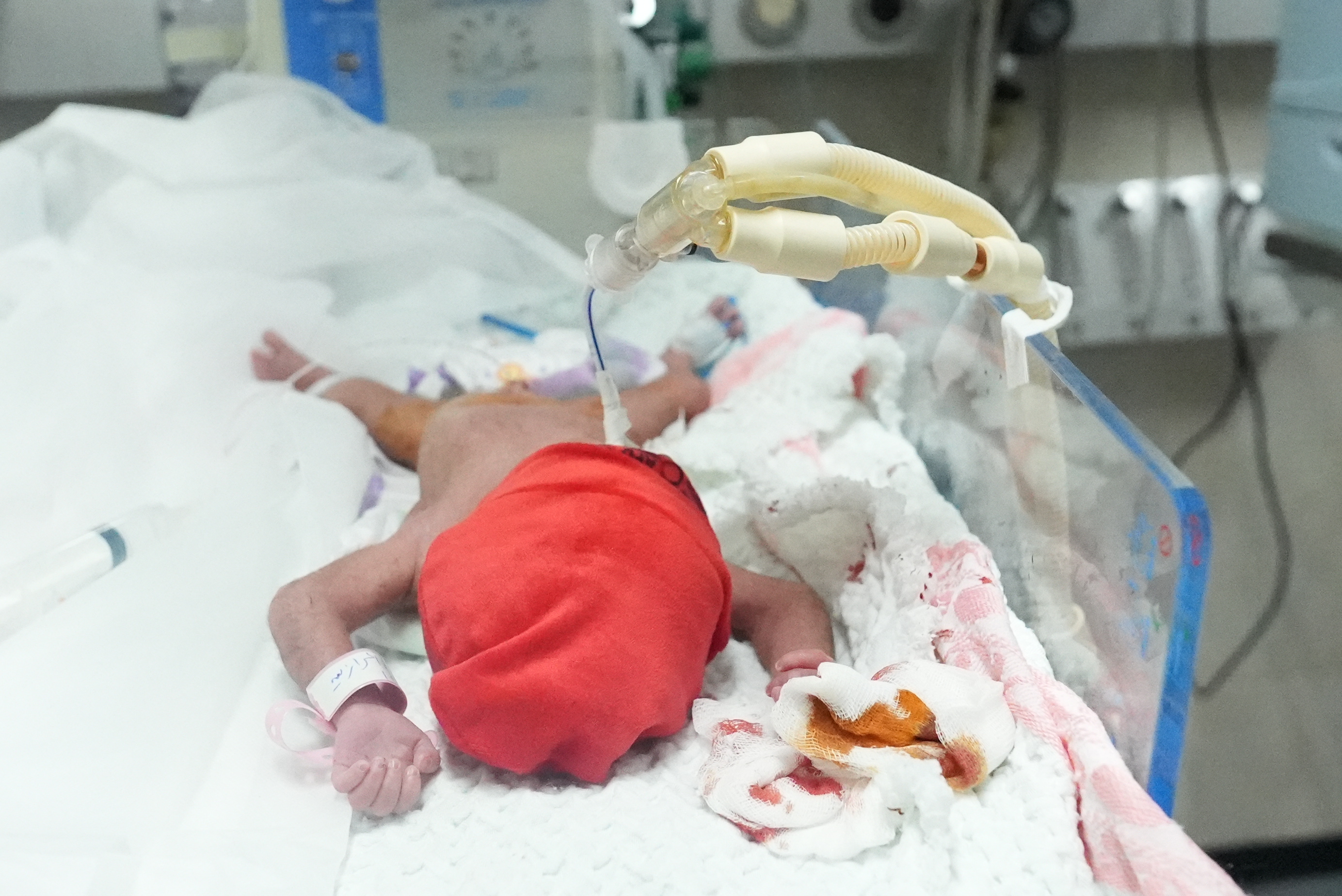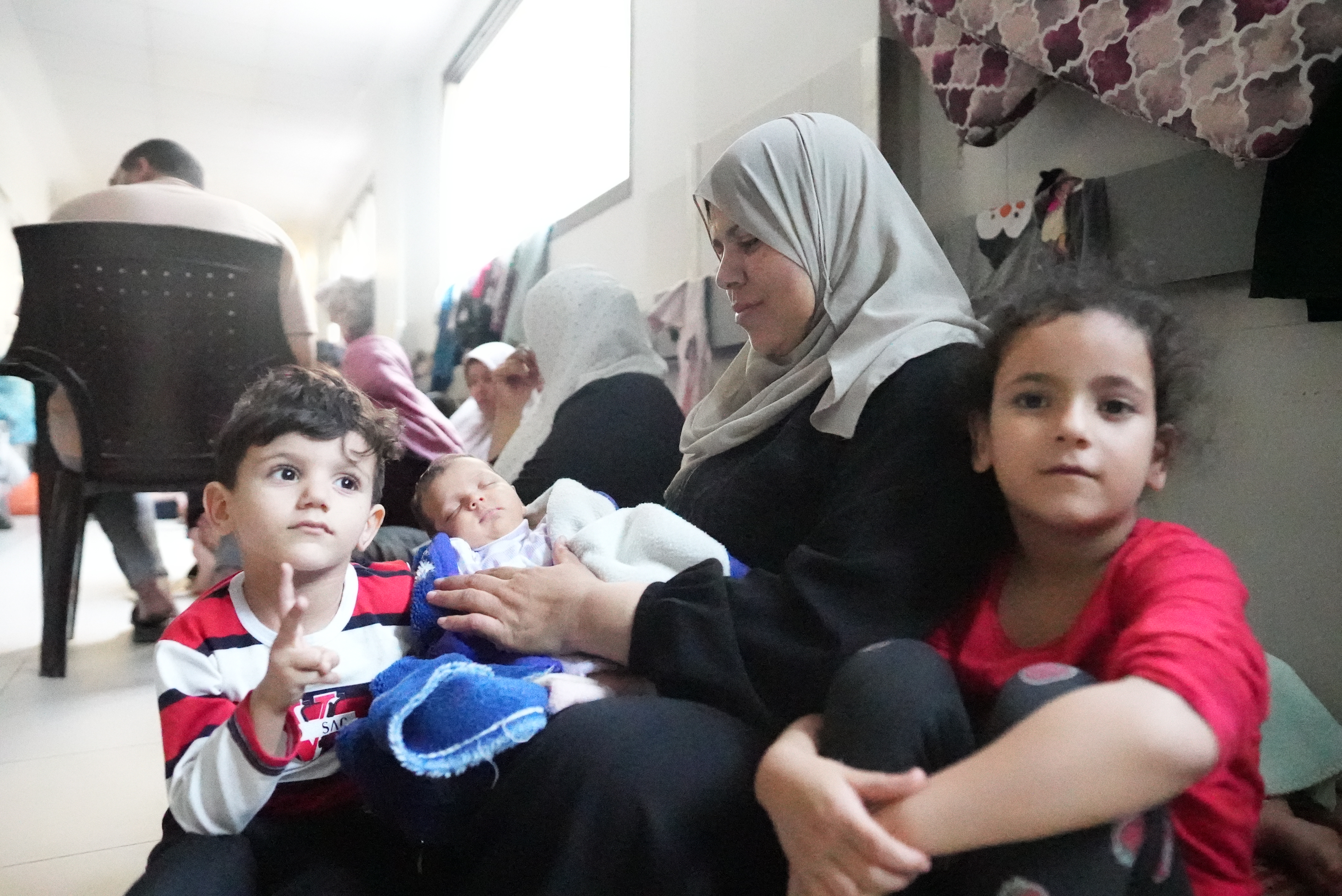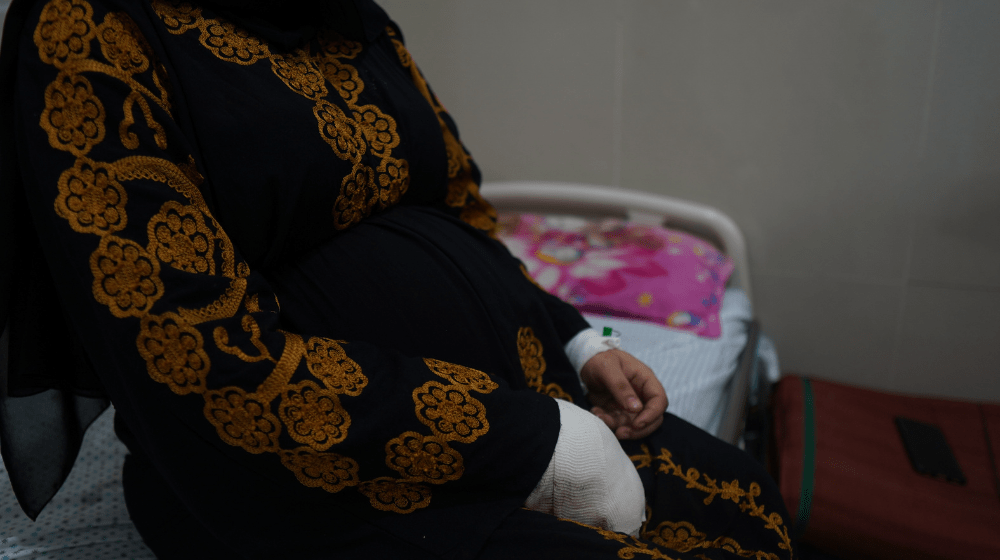GAZA, Palestine – “The working conditions in our hospital are catastrophic. We lack basic necessities for life and we’re struggling with a severe shortage of water,” says Yasmine Ahmed, a midwife at Al-Shifa Hospital, Gaza’s largest medical facility.
As casualties from the calamitous month-long bombardment and siege of Gaza mount, more than one third of Gaza’s 35 hospitals and nearly two-thirds of primary health care clinics have been forced to close, with a devastating impact on women, girls and pregnant women.
“We’ve seen a rise in premature births with the bombing of people’s homes. We’ve had to perform premature deliveries while the mother lay dying. Many of these infants are now orphans. We don't know the fate of their relatives or have any idea about their identities,” says Dr. Nasser Fouad Bulbul, Head of the Premature and Neonatal Care Wards at Al-Shifa hospital.

Gaza is home to 50,000 pregnant women with limited access to essential health services. Around 5,500 women are due to give birth in the next month, which is more than 180 births each day.
Displaced and imperiled
Gaza’s remaining functional hospitals are operating at less than a third of normal staffing levels while struggling with dwindling fuel, medicines, blood supplies and other essentials. Casualties and displaced people are streaming into health facilities in search of medical care and shelter.
“50 to 60 thousand people have evacuated to Al-Shifa Hospital. There is no one to take care of [these babies] and there is the threat that the electricity could cut out, so they would lose their lives [as the incubators are forced to shut down],” says Bisan Ouda, a journalist reporting from Al-Shifa Hospital.
Around 70% of the people killed since the escalation of hostilities on October 7 are women and children, with thousands more injured. One in four of Gaza’s 2.2 million people are women of reproductive age – around 542,000 – who need access to reproductive health services.
More than 1.4 million people are internally displaced, with hundreds of thousands crammed into dangerously overcrowded shelters, posing serious risks of disease outbreaks.

“There is no privacy. There is no dignity here,” one woman told UNFPA of her living situation.
Urgent need
While any aid to Gaza’s hard-pressed civilian population is valuable, deliveries are nowhere near what is needed to address the rapidly escalating humanitarian calamity.
“We need an urgent, unconditional and unrestricted ramping up of life-saving deliveries of food, water, medicine and fuel, which is desperately needed to desalinate drinking water and to run hospitals and bakeries. Without urgent action, this immense catastrophe will rapidly lead to a human catastrophe,” says Laila Baker, UNFPA Regional Director for the Arab States.
Two truckloads of UNFPA-provided reproductive health kits arrived in Gaza this weekend, including crucial medicines and kit to ensure safe births, such as supplies and anesthesia for cesarean sections. Thousands of clean delivery kits will be distributed to pregnant women in the third trimester at health facilities, shelters and other locations. Additional supplies will be sent into Gaza imminently pending convoy movements.
UNFPA began delivering assistance through all possible means before the border to the Gaza strip was opened for humanitarian aid. This included lifesaving drugs for obstetric complications. UNFPA has provided direct cash transfers to over 700 vulnerable women in Gaza, including pregnant women, breast cancer survivors, and survivors of intimate partner violence.
UNFPA also works through youth networks and partners to distribute dignity and hygiene kits- including supplies for menstrual hygiene- to shelters and has begun the distribution of postpartum kits to women who have recently delivered babies and lack basic supplies.
“The harrowing reality that has unfolded in Gaza in the last 30 days has shaken the core of humanity. Today, with a collective voice, we cry out enough! And we reiterate our call for an immediate ceasefire to end the excruciating human suffering in Gaza,” exclaims UNFPA’s Laila Baker.


